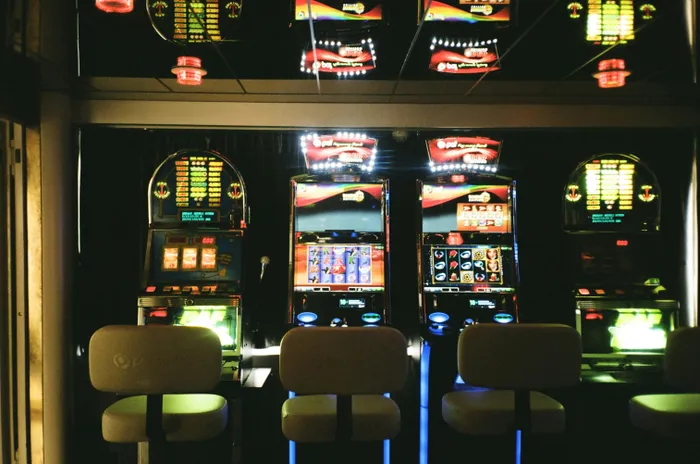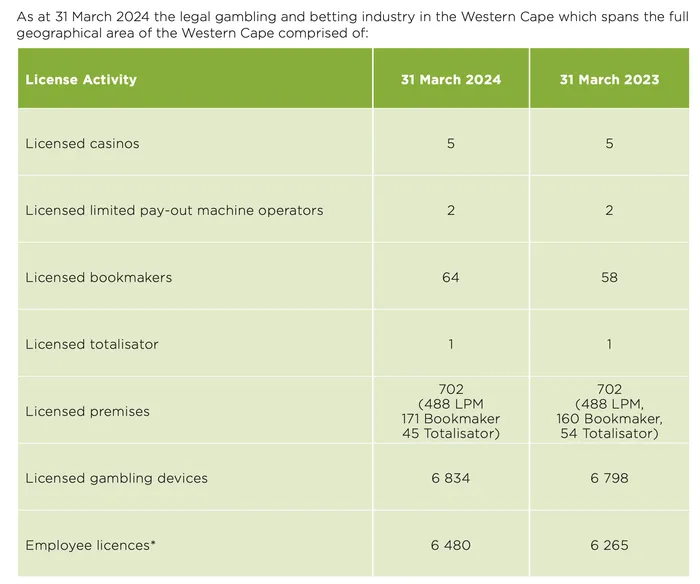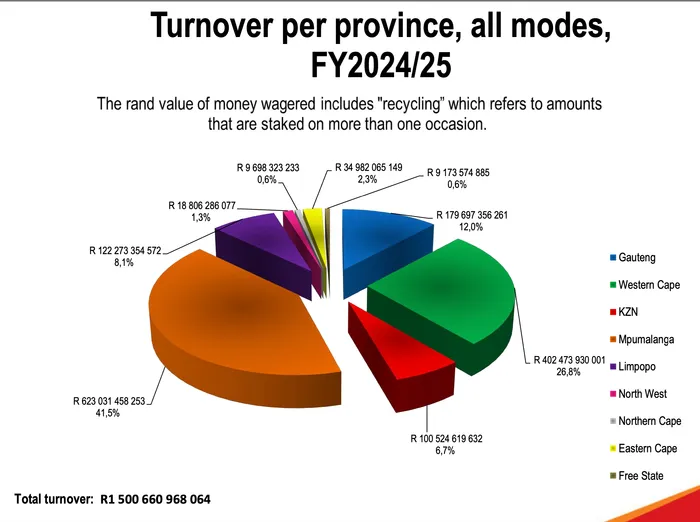The hidden dangers of the Western Cape's R402bn gambling industry

According to the national gambling board’s latest report for the 2024/25 financial year, the Western Cape recorded R402.4bn in total wagers. The province's gross gambling revenue stood at R23.13bn.
Image: pexels
Across the Western Cape, gambling has grown into a booming industry.
In fact, the province has now overtaken Gauteng as SA’s gambling capital.
According to the National Gambling Board’s latest report for the 2024/25 financial year, the Western Cape recorded R402.4bn in total wagers — the highest of any province — while neighbouring Eastern Cape, often visited by Garden Route residents and holiday-makers, recorded R34.9bn.
The Western Cape's gross gambling revenue stood at R23.13bn
Betting and online platforms are driving this growth, with sports betting increasingly popular among players in both provinces.
Nationwide, R1.5tn was wagered across the country.
The gross revenue, excluding winning payouts, amounts to R74.5bn nationally.

The Western Cape has five licensed casinos and 58 bookmakers, according to March 2024 stats
Image: WCGB
Finance MEC Deidre Baartman, who oversees the Western Cape Gambling and Racing Board (WCGRB), said the rise in gambling in the province is linked to the way the industry has been regulated.
Baartman said the WCGRB allowed bookmakers to apply directly for licences or contingencies, instead of waiting for formal requests.
“Licences are issued subject to a thorough probity process and in consideration of responsible gambling objectives,” she said.
Baartman said this approach, along with "good governance and responsiveness to operators", has made the province attractive for both land-based and online gambling, including iGaming platforms.
She also highlighted the economic importance of gambling.
Baartman said the sector was the “second most important own revenue source” for the province, helping fund provincial priorities and creating jobs in casinos, horse racing, and related industries.
Baartman said the province also relied on other sectors, such as finance, agriculture, and tourism, to ensure it is not overly dependent on gambling.
Looking ahead, Baartman said the province wanted to keep growing the sector while protecting players.
Casinos such as GrandWest in Cape Town, the Garden Route Casino in Mossel Bay, the Mykonos Casino in Langebaan, and the Boardwalk Casino in Gqeberha have seen tens of billions of rand flow through their tables and slot machines.
Adverts for gambling are also everywhere now, as betting companies have become major players in mainstream sport, sponsoring leagues and teams across the country.
Betway recently became the title sponsor of the Premier Soccer League after signing a three-year contract worth R900m.
Hollywoodbets continues to sponsor major cricket and rugby tournaments, while SunBet has partnerships with sports franchises and online gaming platforms.
According to the 2024 annual report from Sun International — which owns casinos including GrandWest, Carnival City, Time Square and the Boardwalk — the company earned R6.7bn from its urban casinos in the 2023/24 financial year.
SunBet, the group’s online betting and gaming arm, brought in an additional R1.2bn.
Tsogo Sun — which operates properties such as the Garden Route Casino, Hemingways and Montecasino — also reported strong growth in its betting and online divisions.

R1.5bn was wagered by South Africans in the 2024/25 financial year
Image: National Gambling Board
In the Eastern Cape, sports betting has become the biggest money-maker in the province’s gambling industry, overtaking traditional slot machines for the first time, according to the Eastern Cape Gambling Board.
Between April and September this year, the province generated about R436m in gross gambling revenue — an average of R72m a month.
Sports betting and other bookmaker activities made up more than a third of this income, while slot machines accounted for just over 30%, followed by bingo halls and limited payout machine sites contributing around 14%.
Monthly gambling revenue has remained steady, ranging between R68m and R76m, with May recording the highest earnings.
If the trend continues, the Eastern Cape’s gambling industry could bring in around R860m by the end of March 2026.
A recent survey of nearly 400 members of Gamblers Anonymous found that 57% had admitted to theft to finance gambling.
Mitchells Plain community leader Linda Jones said gambling had quietly become one of the most destructive forces in local families.
“You see mothers borrowing money for food because their sons or husbands have spent everything on betting. Some of our youngsters have reached rock bottom because of it. “It seems harmless at first, but it’s just as bad as drugs, Jones said.
Sun International said it founded the National Responsible Gambling Programme (NRGP) 25 years ago to help problem gamblers.
For help to quit gambling, call the the South African Responsible Gambling Foundation on its toll free counselling line, 0800-006-008 Or WhatsApp/SMS HELP To 076-675-0710 or email to helpline@responsiblegambling.org.za